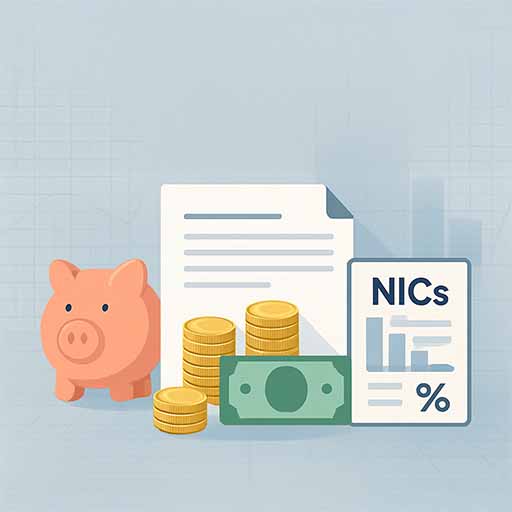Chancellor Rachel Reeves is continuing to address the black hole in the Budget by reportedly considering a significant tax change that could see National Insurance Contributions (NICs) extended to unearned income. This includes rental income, dividends, and savings interest, which are currently exempt from NICs. The proposal aims to address the £40 billion public finance deficit while adhering to Labour's pledge not to increase VAT, income tax, or NI rates.
What is Unearned Income?
Unearned income refers to income derived from sources other than employment or self-employment. Common examples include:
- Rental Income: Earnings from letting out property.
- Dividends: Payments made to shareholders from company profits.
- Savings Interest: Interest earned on savings accounts and investments.
- Pensions: Income from state or private pension schemes.
Currently, these income types are exempt from NICs. NICs are primarily levied on earnings from employment and self-employment, referred to as Class 1 and Class 4 deductions, respectively.
We have created a quick calculator to show you how much extra your deductions could be if the proposals are accepted. The calculator can take any income type and will calculate the before and after difference for you.
The calculator assumes the unearned incomes would be subject to Class 1 NIC. This would mean the threshold/bands would be shared with other incomes subject to Class 1 NICs. For example; if a person has £25,000 of PAYE income and £10,000 of Property Rental income then that additional income is already chargeable to NIC as the PAYE income has used up the NIC zero threshold. The same would apply with the threshold for the upper earnings limit.
An alternative 'fairer' approach could be to create a new NIC class for unearned income, lets say Class 5 'unearned income' then that is shared between 'unearned income' sources. For simplicity, in the calculator we go with the former approach.
The Proposal
The Treasury is exploring the possibility of applying an 8 percent NIC rate to rental income, which could generate an estimated £2 billion annually. Interestingly this tax rate is the same as the Class 1 NIC rate applied to PAYE and not the lower 6% rate for the self-employed.
This measure is part of Labour's broader strategy to make the tax system more equitable and address fiscal challenges without increasing taxes on "working people."
Supporters of the proposal argue that it would create a fairer tax system by aligning the treatment of earned and unearned income. Adam Corlett, principal economist at the Resolution Foundation, stated, "There’s no good reason why landlords should face lower tax rates than their tenants."
The Resolution Foundation previously proposed this idea of NICs on unearned income, but it was not adopted in Budget 2024.
Potential Impacts
While the proposal has its supporters, it has also faced significant criticism:
- Impact on Landlords: Critics warn that the additional tax burden could lead to landlords selling properties, reducing rental supply, and increasing rents.
- Impact on Tenants: Higher rents could disproportionately affect low and middle-income households.
- Impact on Investment: Extending NICs to dividends and savings interest could discourage investment and long-term saving.
What Income Types Could Be Affected?
If the proposal is implemented, the following income types could become subject to NICs:
- Rental Income: Currently exempt unless the landlord is "gainfully employed" in property management.
- Dividends: Not subject to NICs as they are considered a distribution of profits.
- Savings Interest: Exempt from NICs under current rules.
- Pensions: Exempt from NICs, including after reaching State Pension age.
As the government prepares the Autumn Budget as it fast approaches in two months, the outcome of this proposal currently remains uncertain.


